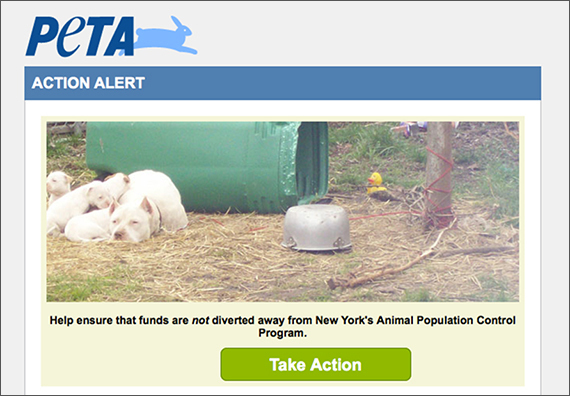When New York Governor Andrew Cuomo vetoed Assembly Bill 2778 in late October, he provided a rationale clearly intended to alienate as few constituents as possible. Trouble is, it wasn't just local, state, and national animal welfare organizations that supported this bill, which would have allocated up to $200,000 annually from the state's Animal Population Control Program (APCP) Fund for the sterilization of "feral" cats. Other supporters included the New York State Association of Counties, the County Health Officials of New York State, the New York State Conference of Mayors, and the New York City Bar Association (PDF).
Clearly, these public-minded organizations recognize the value of trap-neuter-return (TNR), which is becoming increasingly popular across the country for managing unowned, free-roaming ("community") cats. Standard practice begins with humanely trapping the cats; they are then evaluated and spayed or neutered by a licensed veterinarian, ear-tipped (the universal indicator of a sterilized community cat), vaccinated against rabies and distemper, and then (following recovery) returned to the location from which they were trapped.
Targeted TNR (i.e., maximizing the number of cats sterilized at the colony- or neighborhood-level) can effectively stabilize and, over time, reduce community cat populations.
Supporters of A.2778 also recognized that TNR aligns perfectly with the purpose of the APCP Fund: "to reduce the population of unwanted and stray dogs and cats thereby reducing incidence of euthanasia and potential threats to public health and safety posed by the large population of these animals."
While up to 20 percent of the APCP Fund would have been allocated to TNR programs, the remaining 80 percent or more would be used to spay and neuter pets owned by low-income residents, the only allowable disbursements under the APCP Fund's current configuration. People for the Ethical Treatment of Animals (PETA) seized on this point, portraying A.2778 (which they described as "a dangerous piece of legislation") as TNR supporters' war on the poor, suggesting that the proposed shift in APCP funding would be a blow to low-income pet owners.
This was shameful, even for PETA -- an organization whose better-off-dead philosophy drives their long-running opposition to TNR, just as it drives their demonization of pit bull terriers.
In an action alert urging members to push for Cuomo's veto -- and featuring, apparently without irony, photos of pit bull terriers -- PETA's Teresa Chagrin very carefully "edited" language from New York's Agriculture and Markets Law regarding the purpose of the APCP Fund:
"If passed, S.1081/A.2778 would undermine the intent of the APCP, whose purpose is to encourage and help indigent dog and cat owners in the state to have their animal companions spayed or neutered, 'thereby reducing incidence of euthanasia and potential threats to public health and safety posed by the large population of these animals.'"
But remember, the purpose -- as spelled out in the law -- is rather different: "to reduce the population of unwanted and stray dogs and cats" (emphasis mine), whether they are owned or not. Moreover, contrary to what's implied in PETA's alert, redirecting a portion of funding to TNR efforts would significantly benefit low-income residents, whether they own pets or not. After all, it's well known that low-income neighborhoods are typically where the most community cats are found.
Reduce their numbers, and the whole neighborhood benefits.
No doubt PETA (along with other TNR opponents) celebrated Cuomo's veto, but it's difficult to see how any of the stakeholders came out a winner. Making it more difficult to sterilize and vaccinate community cats doesn't serve anybody's best interest.
It's something to keep in mind as PETA kicks their year-end fundraising campaign into high gear.
